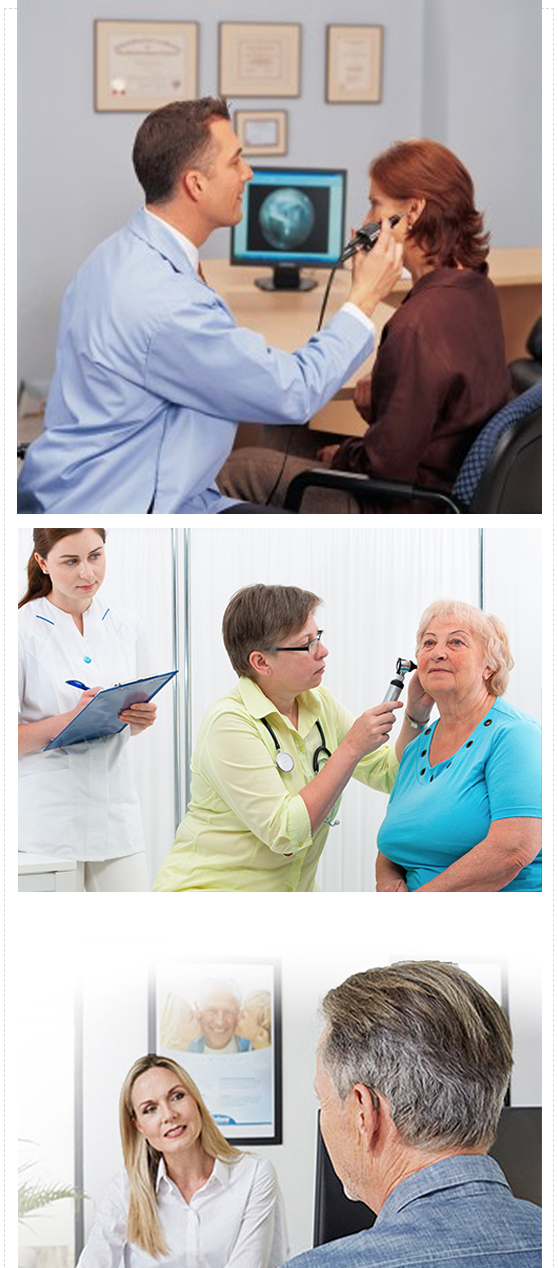

Menu
Why Should I Get My Hearing Tested?
Early detection of a hearing loss is key! It is important to know where you stand with your hearing as it may affect your overall health since hearing loss can happen at any age and can play a role in other health issues.
With over 33 million Americans suffering from hearing loss, medical professionals believe it is important to get a baseline screening, followed by an annual evaluation after the age of 50. Hearing loss is the third most common chronic health problem in older adults in the U.S., and only 30% of individuals with hearing difficulties actually wear hearing aids. You should not wait until you are notice a hearing loss to get a screening. Early detection of hearing loss can allow your hearing specialist to monitor your hearing and provide you with the best action to take.

What To Expect During Your Visit
Your Beltone Specialist will guide you through a completely painless evaluation, which includes a video ear scan and a comprehensive hearing test.
• Video Ear Scan: Is it wax? Checking for excessive wax or other physical medical conditions is the first step to a hearing test. This is done by using an otoscope to physically look inside your ear canal. At this point, you will be able to see inside your ear, on a large TV screen, as the hearing specialist is looking as well. During this guided tour of your ear, the hearing specialist can answer any questions you may have at this time. This process is completely painless and takes very little time to conduct. If excessive wax is found we may be able to remove it, otherwise we can provide a referral to have it removed.
